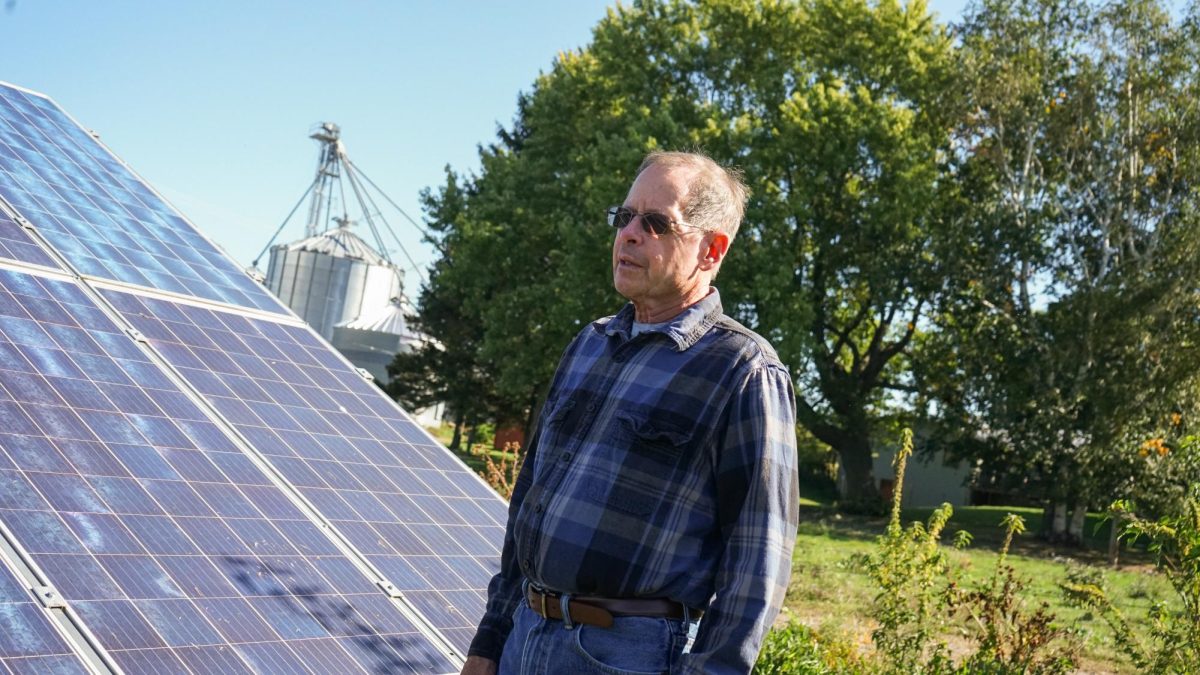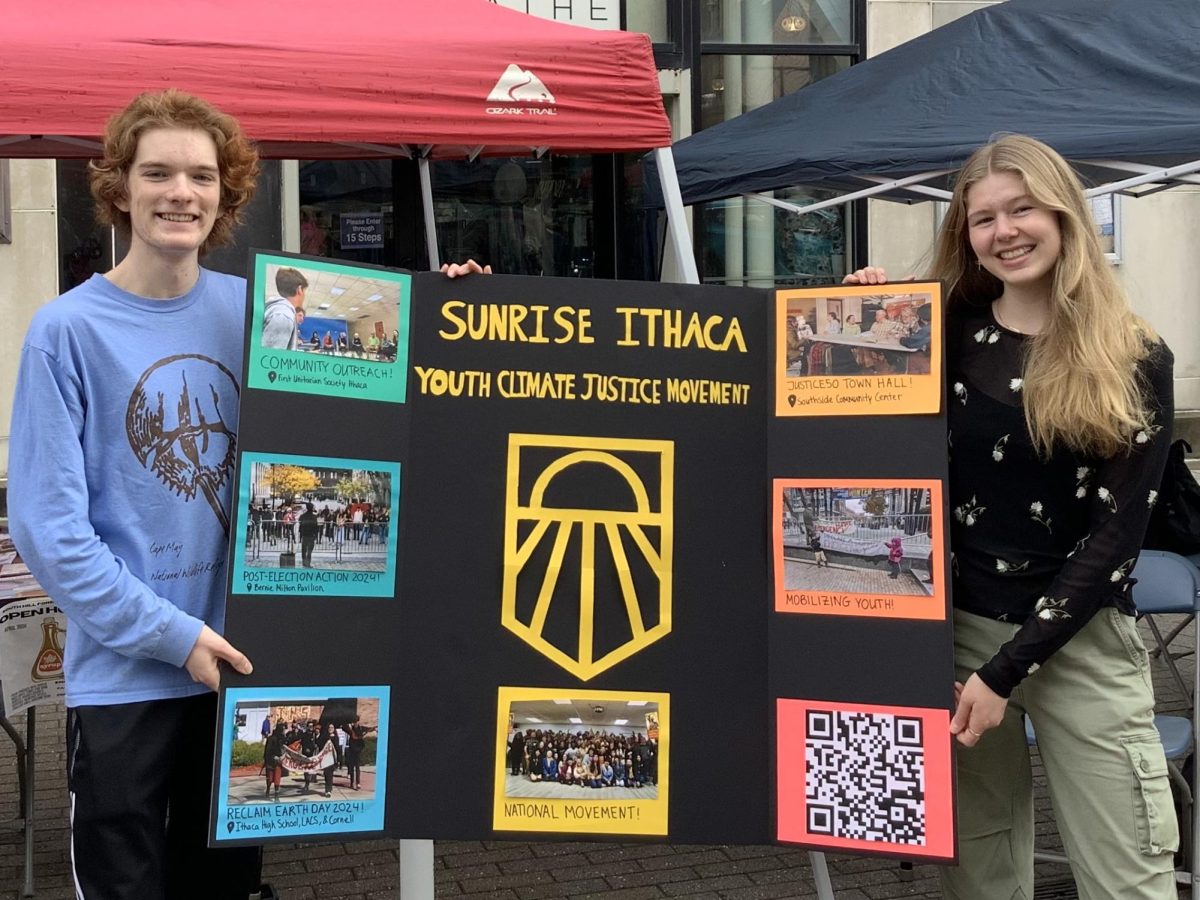Herman and his son, Sam, took the four hour trip to New York City to demonstrate their physics exhibits made out of recycled items on a bright blue bus at the family-friendly festival.
Children at the after school program at the Greater Ithaca Activities Center are the main contributors to the exhibits on the bus. Claire Fox, who is an educator at the Ithaca Generator, works with the students at GIAC to make the exhibits that experiment with electricity, magnetism and light. She said many of the exhibits used during the Maker Faire festival were designed and created by the kids.
“I think [the children] definitely feel a sense of pride when their exhibits are shared with the world,” she said.
Herman, a science education outreach specialist at Cornell University for the last four years, started the Ithaca Physics Bus as a personal educational initiative after he ran a similar operation in Tucson, Arizona called the Physics Factory for 10 years. The bus can be parked at any location and plugged into an outlet so people can walk through it and experience the exhibits, Herman said.
“It’s a way for Cornell folks, Ithaca College folks, and other organizations to use the bus as a way to pursue their own outreach missions,” he said.
The local project took off this summer after Herman initiated an Indiegogo campaign to raise $15,000 to buy a bus and facilitate necessary operation fees.
Michael Moore Davis, astronomer and retired site director for Arecibo Observatory, was one of the local donors to the Indiegogo campaign. Davis said the project could be hugely rewarding for youth in the Ithaca community.
“We have a superb Sciencenter here for kids and everybody, but that’s if someone has the gumption to get you up and take you there,” Davis said. “But to have a bus come specially to you, that’s really something.”
While the Indiegogo campaign did not reach its funding goal —it raised $6,720 during the campaign — a Cornell graduate donated a small, repurposed school bus that was used as a party bus for friends, which cut down a significant part of the initial costs. As far as exhibits go, costs are minimal because everything is made from recycled or donated “junk,” Herman said.
The bus made its first local appearance at Porchfest, and Herman said he has received a lot of interest in people and organizations wanting to commission the bus.
“I’m hoping more folks step up and say, ‘Hey, I want to take your bus because we’re having a big event,’” Herman said. “I love building exhibits, I love that there’s a bus here, I want to make sure it all happens, but it doesn’t have to be me behind the wheel.”
To use Herman’s bus for education and outreach, there is no formal payment system. Instead, he said he just expects people leave the bus in good condition and fill up the tank. Utilizing common materials for projects shows kids that they don’t need to own anything fancy to learn about science, Herman said. To carry out that theme, kids and adults can observe the Physics Bus and participate in its exhibits free of charge.
Fox said she thinks the Physics Bus has been widely accepted in Ithaca, but it also has potential in reaching out to communities outside of Ithaca that are in need of science enrichment.
“I am interested in seeing it get the funding to move to the next level, where the bus is able to travel to outlying communities that don’t have as much of that going on already that need more science enrichment,” she said.
Herman said he’s excited about the Bus’ rising popularity, and that he’s looking forward to the day when a permanent location for physics exploration, like the Physics Factory in Arizona, can be achieved here in Ithaca.






